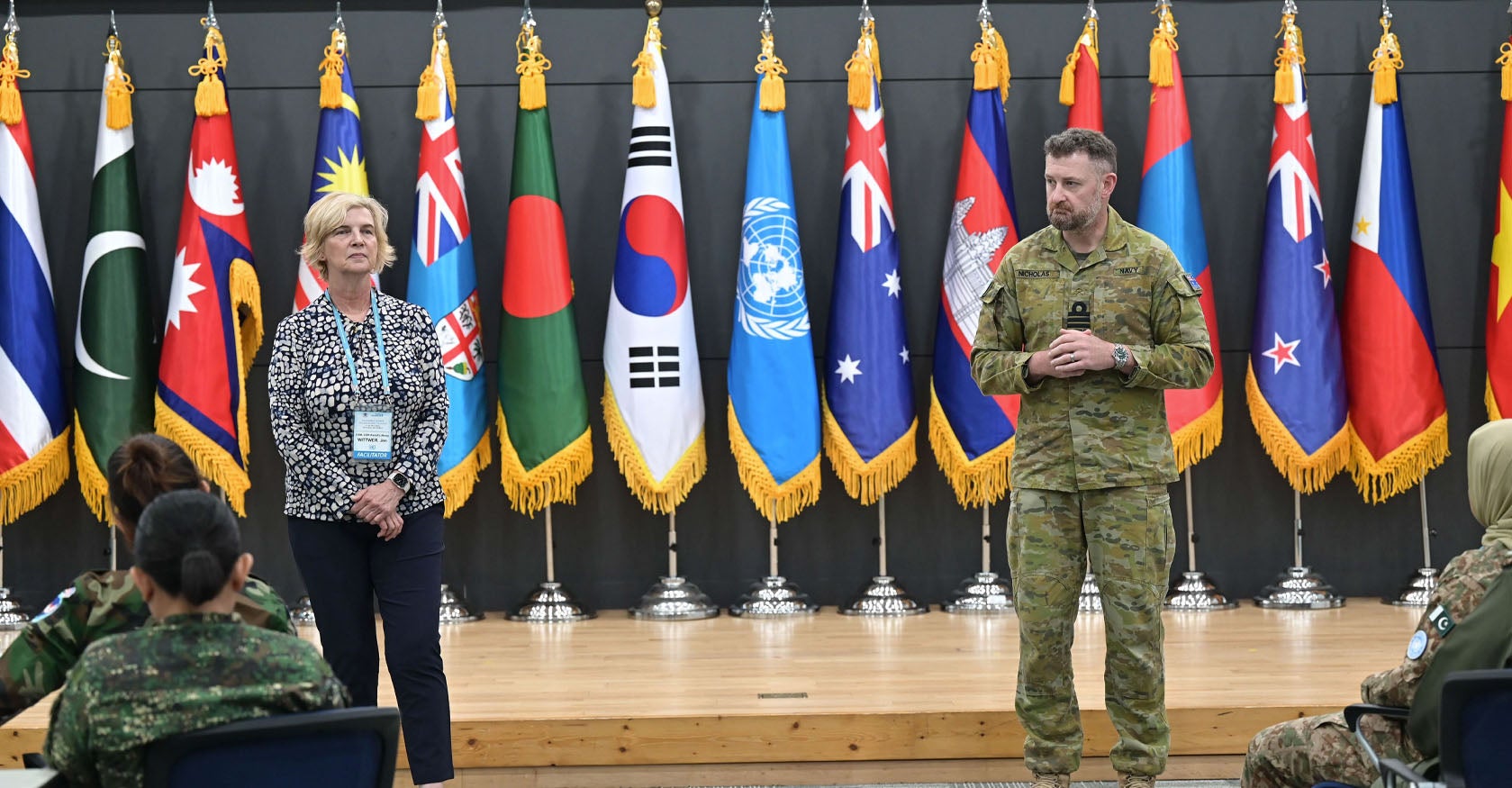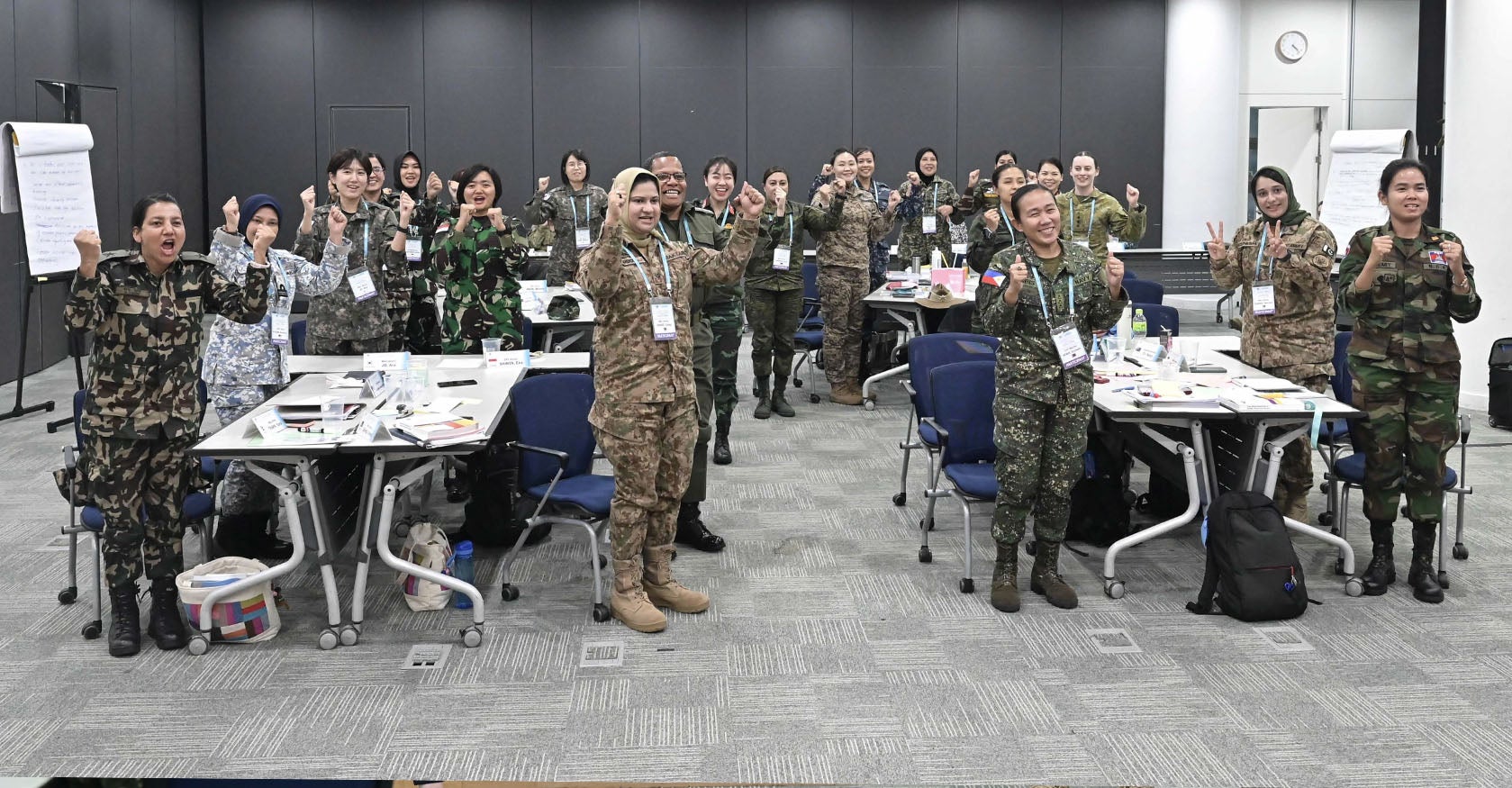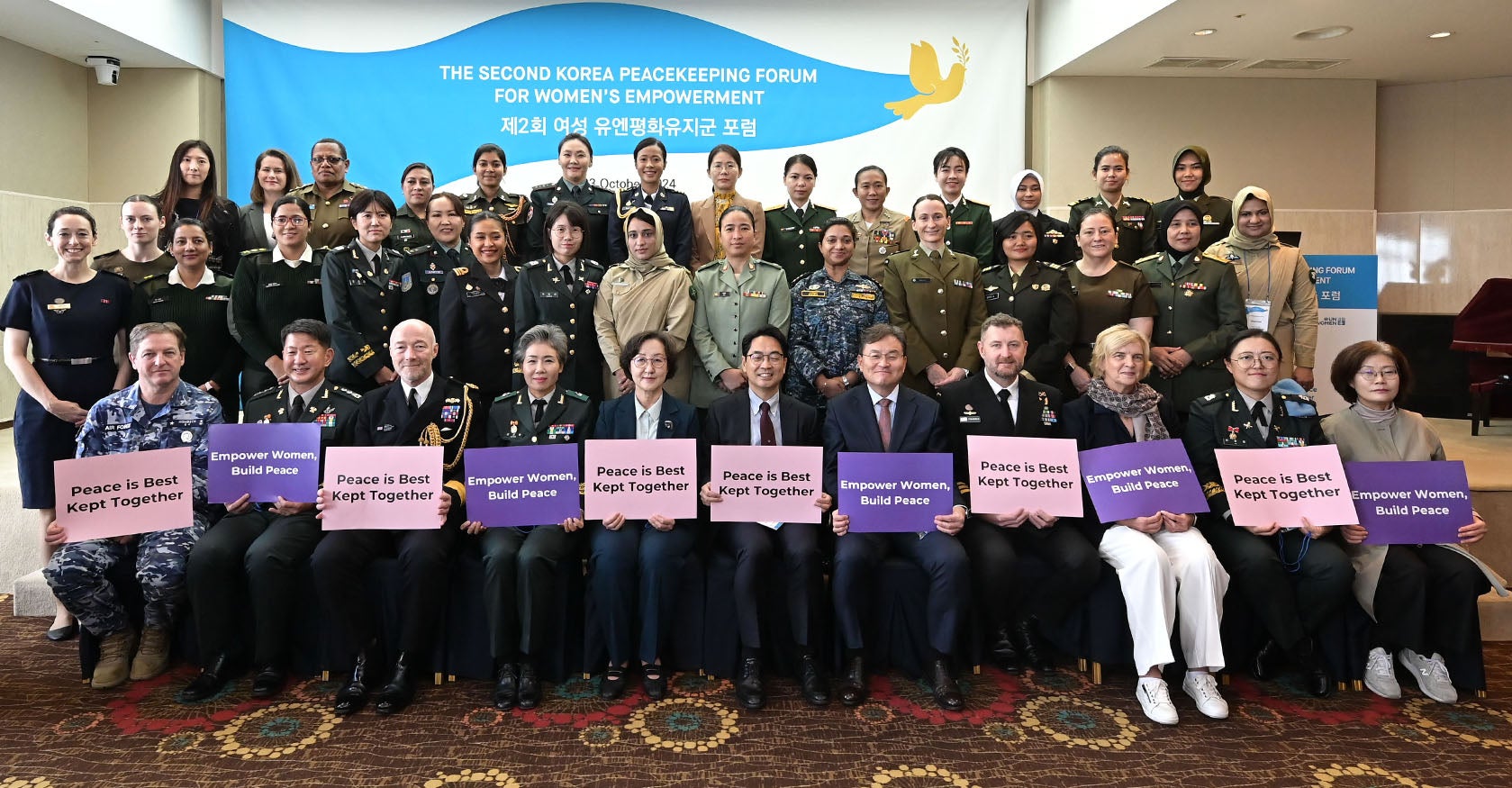
Group photo featuring high-level participants and trainees of the Uniformed Women Peacekeepers’ Training at the Second Korea Peacekeeping Forum for Women's Empowerment on 23 October 2024. Photo: UN Women/Hwang Chang Kyu
English | 한국어
Seoul, Republic of Korea — Over 100 military officials, government leaders, and diplomats gathered in Seoul for the Second Korea Peacekeeping Forum for Women’s Empowerment, showing strong support to the women, peace, and security (WPS) agenda and highlighting the critical importance of women’s full, equal, and meaningful participation for ensuring mission success in peace operations.
Building on the success of last year’s inaugural forum, the UN Women Centre of Excellence (the Centre) organized this second dialogue, in partnership with the Ministry of National Defense (MND) and the Ministry of Gender Equality and Family (MOGEF) of the Republic of Korea (ROK).
In their opening speeches as co-hosts, Jeongshim Lee, Director of the Centre, and Seung-buhm Lee, Director-General for International Policy of the Ministry of National Defense, emphasized the need to create a truly enabling environment for more women peacekeepers to join, advance, and contribute to peace operations and national armed forces. Referencing ROK’s role as a non-permanent member of the UN Security Council for the 2024–2025 term, Kim Young-ho, Vice President of Korea National Defense University, also highlighted the significance of the forum as a meaningful platform to reflect on WPS issues, particularly with overseas participants from the Asia-Pacific region.
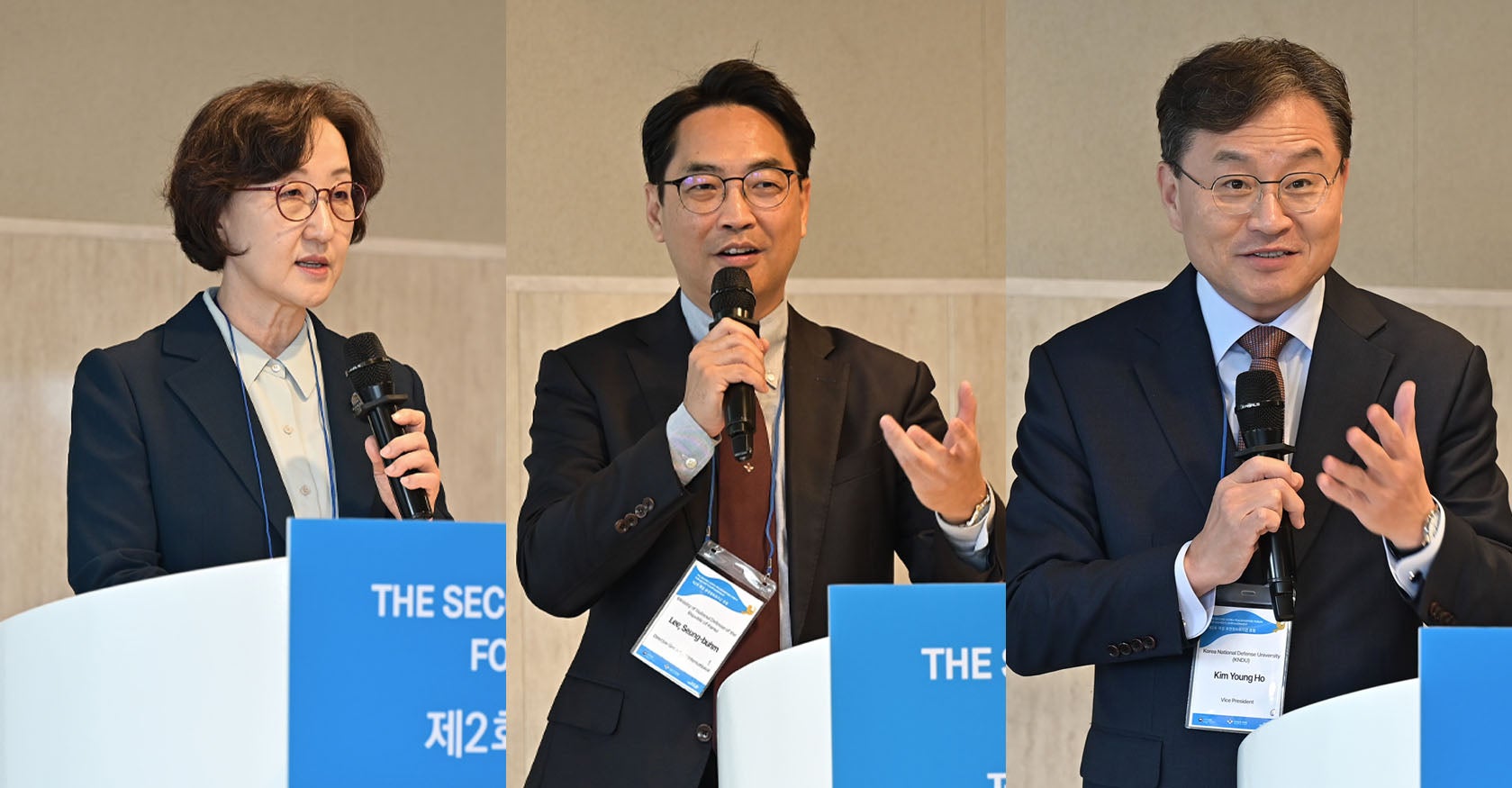
(from left) Jeongshim Lee, Director, UN Women Centre of Excellence for Gender Equality; Seung-buhm Lee, Director-General for International Policy, Ministry of National Defense of the Republic of Korea; Kim Young-ho, Vice President of Korea National Defense University. Photo: UN Women/Hwang Chang Kyu
The forum featured three prominent speakers with extensive experience in military service and peace operations. They shared critical insights and real-life experiences, highlighting the persistent challenges faced by women peacekeepers in the field and the necessary actions to advance gender equality in peace operations.
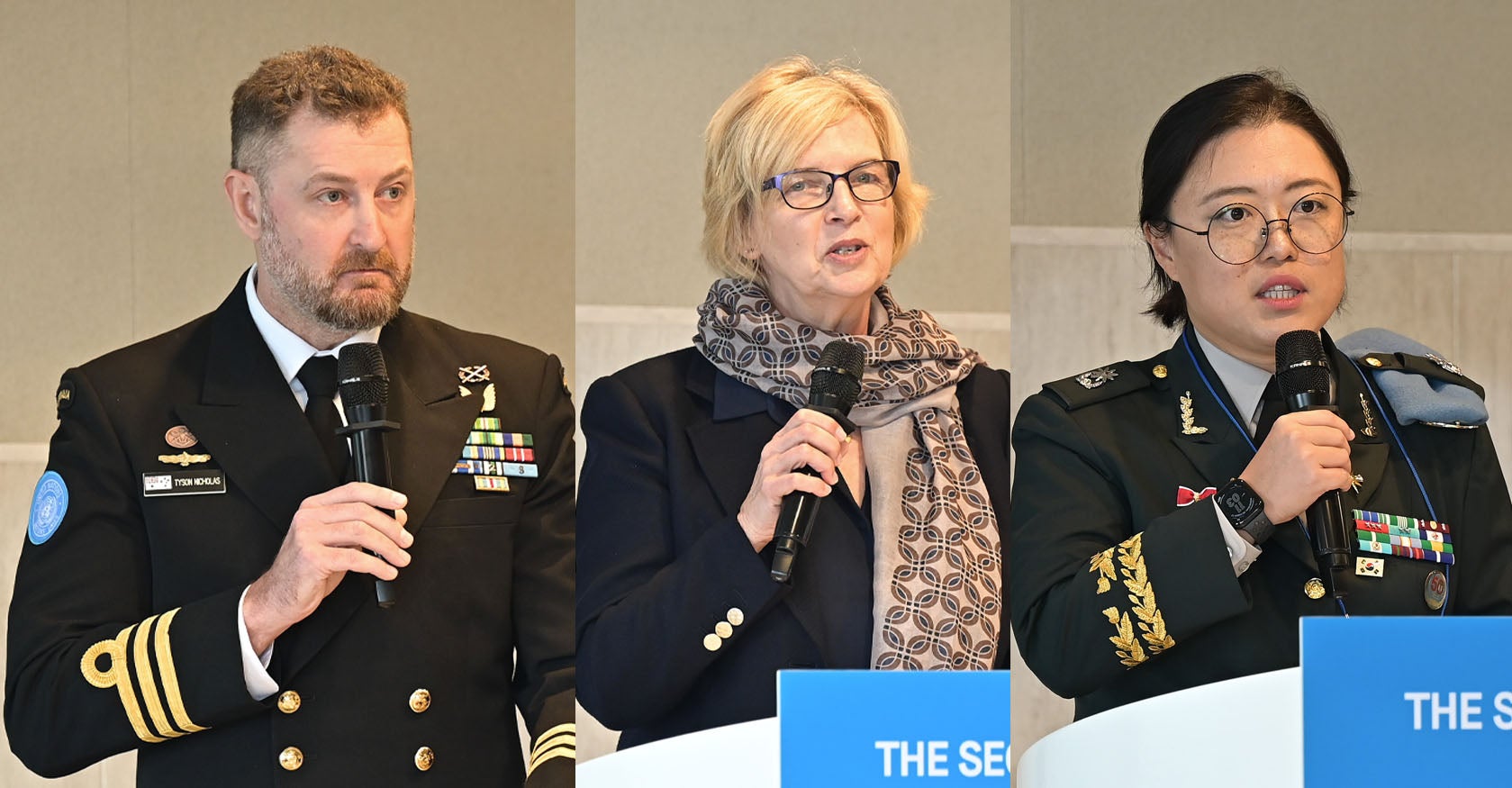
(from left) Commander Tyson Nicholas, Military Advisor at UN Women HQ; Jen Wittwer, CSM, Commander RAN (Ret.); Lt. Col. Sungyeon Yi, a Liaison Officer with United Nations Disengagement Observer Force (UNDOF). Photo: UN Women/Hwang Chang Kyu
Commander Tyson Nicholas, Strategic Military Advisor at UN Women, emphasized that gender equality should not be viewed as a peripheral issue but recognized as a critical factor for mission success. He also made a compelling call for the “HeForShe” initiative, urging male leaders to take an active role in championing and advancing the WPS agenda within military institutions.
Jen Wittwer, a renowned WPS expert and retired Commander of the Australian Navy, highlighted the systemic challenges women face in armed forces and peace operations, stemming from entrenched gendered power structures. She shared concrete examples of successful gender mainstreaming efforts and institutional cultural shifts implemented in several national militaries.
From the ROK military, Lt. Col. (S) Sungyeon Yi, Liaison Officer with the United Nations Disengagement Observer Force (UNDOF), discussed the practical challenges women peacekeepers encounter, such as balancing family commitments, dealing with gender-insensitive comments, and the lack of role models and mentors in the field. To address these barriers, she recommended gender sensitivity training, clear protocols for handling inappropriate behavior, and the creation of safe spaces where women can voice concerns without fear of retribution.
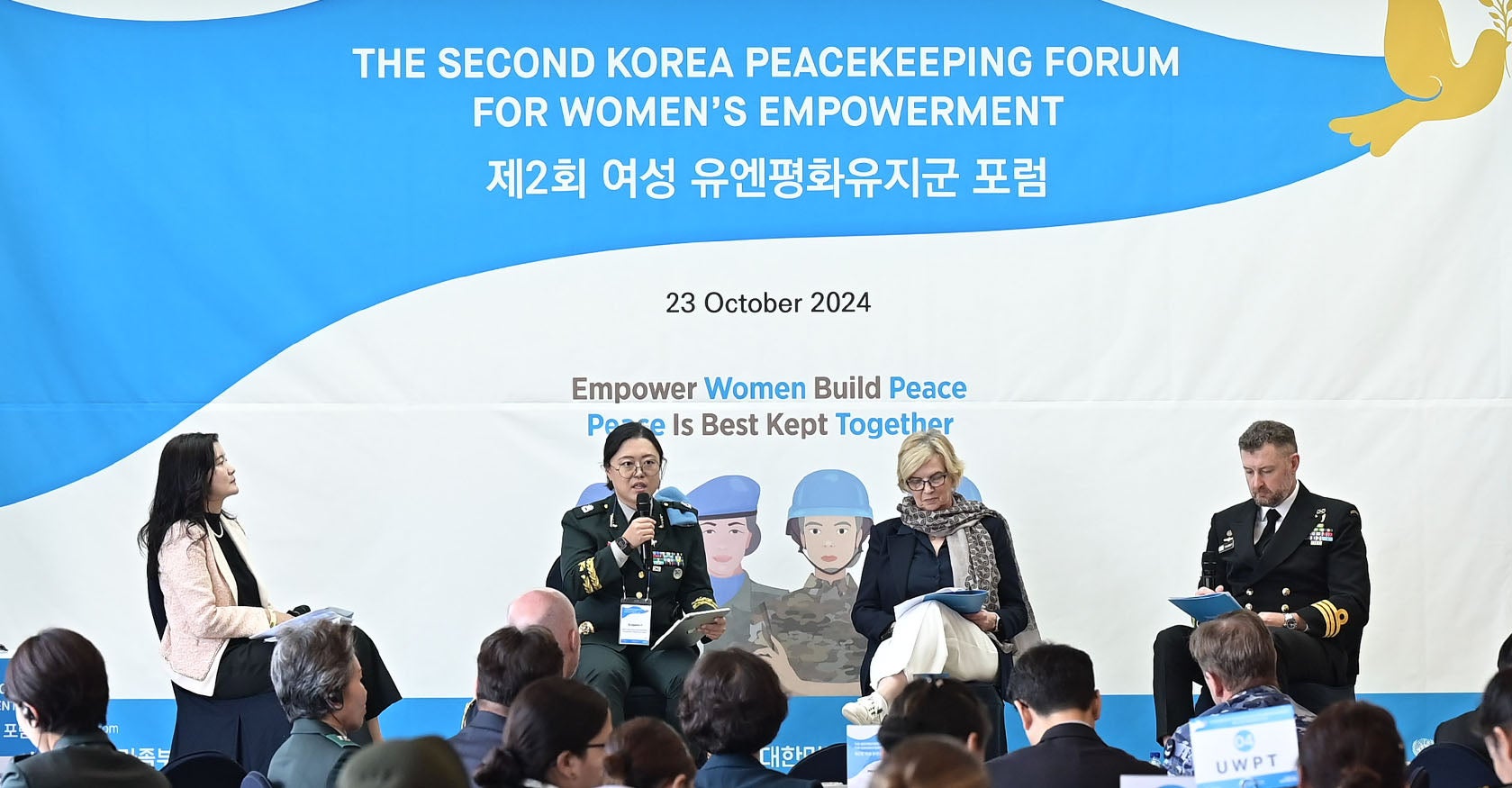
Panel discussion. From the left: Ahjung Lee, External Relations Specialist, UN Women Centre of Excellence for Gender Equality; Lt. Col. Sungyeon Yi, a Liaison Officer with United Nations Disengagement Observer Force (UNDOF); Jen Wittwer, CSM, Commander RAN (Ret.); Commander Tyson Nicholas, Military Advisor at UN Women HQ. Photo: UN Women/Hwang Chang Kyu
Following the presentations, a lively panel discussion with the three speakers took place, moderated by Ahjung Lee, External Relations Specialist and WPS Coordinator at the Centre. Lt. Col. Yi emphasized that expanding the scope of responsibilities and leadership opportunities for women—not just increasing their numbers—leads to a more effective and inclusive peacekeeping force, better equipped to address the complexities of modern conflict. Commander Wittwer recommended promoting a new narrative of leadership that values the strengths of diverse styles and perspectives, including those associated with women and traditionally marginalized groups. On the same topic, Commander Tyson underscored, "Commanders at all levels must understand that gender equality is not a side issue—it’s a strategic necessity."
This year’s Forum served as the finale of the Uniformed Women Peacekeepers’ Training Programme (UWPT), co-organized by the Centre and the ROK Peacekeeping Operations Centre. The programme, which combined a UN Staff Officers Course with a Leadership and Empowerment Workshop, equipped 22 women military officers from 13 countries across the Asia-Pacific region with essential operational and leadership skills.
Instructors and trainees at the Leadership and Empowerment Workshop in the Uniformed Women Peacekeepers’ Training (UWPT). Photo: UN Women/Hwang Chang Kyu
At the Forum, participants of the UWPT shared their reflections during the final segment. Major Ara Jo from the ROK Army highlighted how the training boosted her confidence and prepared her for her upcoming deployment as a military observer. Another participant, Captain Orchelyn Bobis from the Philippines, emphasized the importance of programmes like the UWPT, stating, “Diversity strengthens peacekeeping efforts, and empowering women uplifts entire communities.”
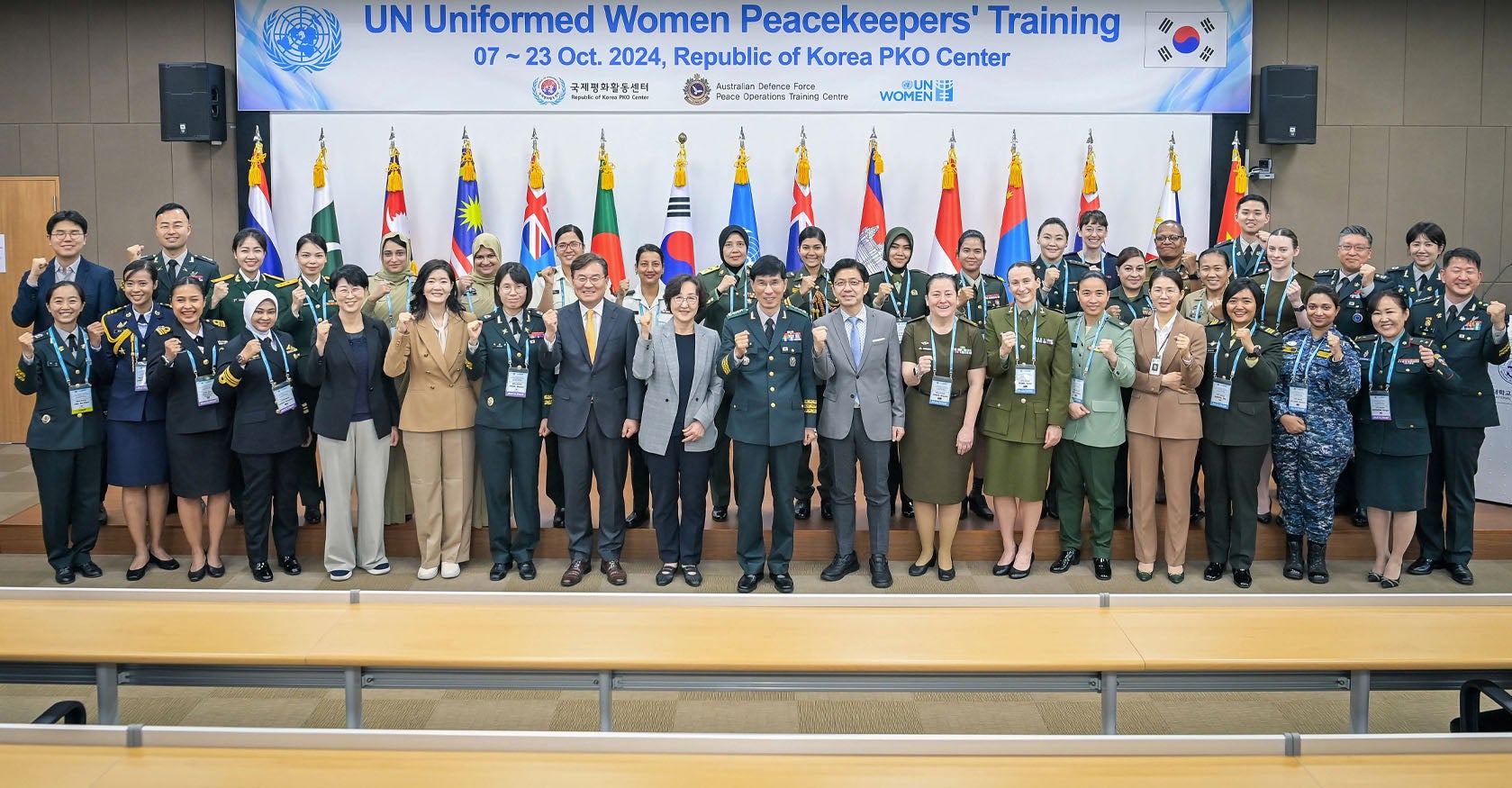
Group photo of UN Uniformed Women Peacekeepers’ Training Launch Ceremony on 7 October 2024. Photo: Courtesy of Korea National Defense University/Jeongcheol Lee
Overall, the forum highlighted that empowering and retaining women’s talent in the military and peace operations is not just about advancing gender equality—it is a powerful step toward building stronger, more effective, and future-ready institutions.




